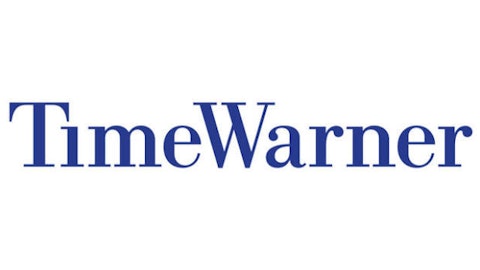In today’s television industry, satellite is the new kid on the block. Recent advances in satellite technology have made the service more reliable and affordable. But even still, the cable industry is booming. With 41.2 million subscribers, cable companies command 48% of the market.
Now Charter Communications, Inc. (NASDAQ:CHTR) CEO Tom Rutledge wants to merge with competing companies in an effort to be more competitive. He says that eventually the cable industry will boil down to two major players. So why not be proactive and take advantage of the situation?

I think consolidation is a good idea. Here’s why.
In a world of its own
Before cable companies like Charter Communications, Inc. (NASDAQ:CHTR) and Time Warner Cable Inc (NYSE:TWC) can think about competing with satellite providers, they must figure out how to compete within their own industry, mainly against Comcast Corporation (NASDAQ:CMCSA). With 21.9 million subscribers, Comcast nearly doubles the 12.1 million subscriber count of Time Warner.
To make matters worse for Time Warner Cable Inc (NYSE:TWC), the Wall Street Journal reported that Comcast Corporation (NASDAQ:CMCSA)’s Universal Studios is signing a deal with successful blockbuster producer Legendary Pictures. Legendary produced such franchises as The Dark Knight and The Hangover, as well as the recent Man of Steel. Although Legendary has largely shied away from TV, successful films are cash cows – the Dark Knight franchise grossed $1.2 billion at the box office alone – and I’m sure Comcast will find ways to put the extra cash to good use.
Consolidation would allow smaller cable companies to lower costs while affording better leverage over media firms that supply TV programming. If the second, third, and fourth place cable providers (Time Warner Cable Inc (NYSE:TWC), Cox, and Charter Communications, Inc. (NASDAQ:CHTR)) merged, they would form a company with just as many subscribers as Comcast Corporation (NASDAQ:CMCSA). Note the 2012 year-end subscription numbers for the major cable and satellite providers.
| Service Provider | Technology | Total Subscribers |
|---|---|---|
| Comcast | Cable | 21,995,000 |
| DirecTV | Satellite | 20,080,000 |
| DISH Network | Satellite | 14,056,000 |
| Time Warner Cable | Cable | 12,030,000 |
| Verizon | IPTV | 4,700,000 |
| AT&T | IPTV | 4,500,000 |
| Charter | Cable | 3,989,000 |
| Cablevision | Cable | 3,197,000 |
| Total | 84,547,000 |
Satellite contenders
What about satellite competition? The major satellite companies have a total of 34.1 million subscribers, but growth is the key statistic here. From Q1 2011 to Q4 2012, satellite giants DIRECTV (NASDAQ:DTV) and DISH Network Corp. (NASDAQ:DISH) gained 861,000 subscribers and lost 77,000 subscribers respectively. Those numbers outpaced Time Warner Cable Inc (NYSE:TWC) and Charter Communications, Inc. (NASDAQ:CHTR), who lost 985,000 and 370,300 subscribers over the same period.
Put another way, DIRECTV (NASDAQ:DTV)’s subscriber count grew 4.5% and DISH Network Corp. (NASDAQ:DISH)’s fell .5%, but Time Warner Cable Inc (NYSE:TWC)’s drooped 7.6% and Charter Communications, Inc. (NASDAQ:CHTR)’s plummeted 8.5%. Call me crazy, but it looks like customers are growing to like satellite.
Cable companies – especially Time Warner – are losing subscribers left and right, and I think they should come together to stop the bleeding. Even though Time Warner CEO Glenn Britt has so far showed little interest in a merger, Britt is stepping down later this year, opening the door to new possibilities.
I don’t think that cable companies can win back subscribers with TV. They need to capitalize on broadband Internet. Consolidation will put cable companies in position to capitalize on the recent streaming and online gaming trend. TV and online gaming both use large amounts of bandwidth, and satellite companies have difficulty providing enough bandwidth. Satellite may be great for TV, but it isn’t ideal for surfing the net. Cable providers are in a favorable position because bundling Internet and TV services is popular and easy.





